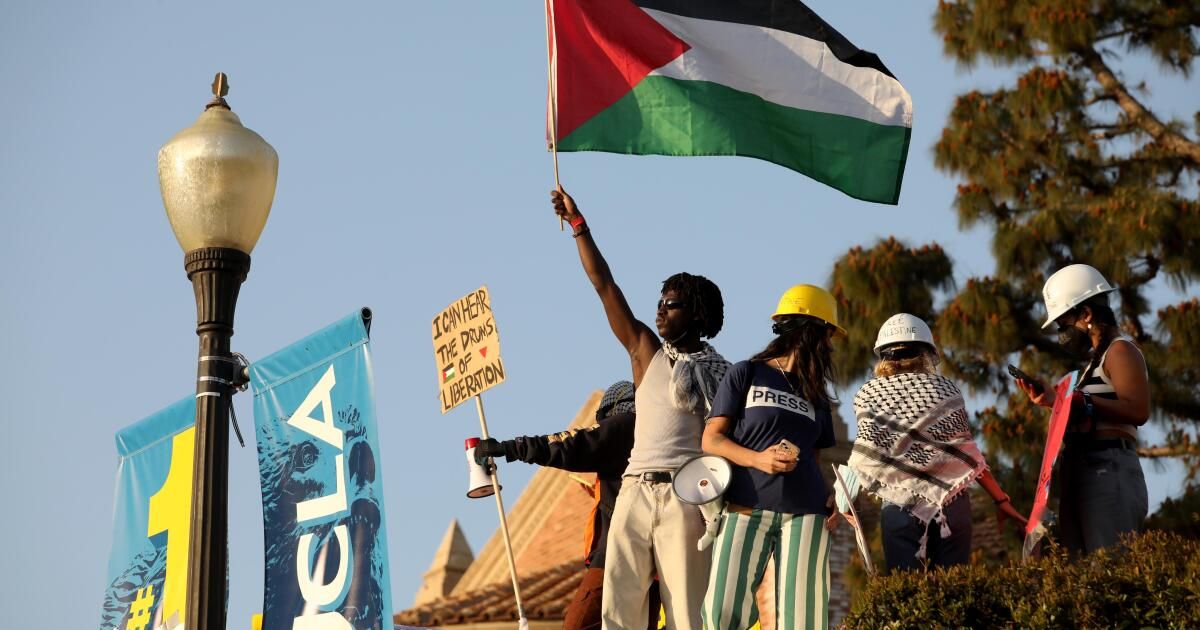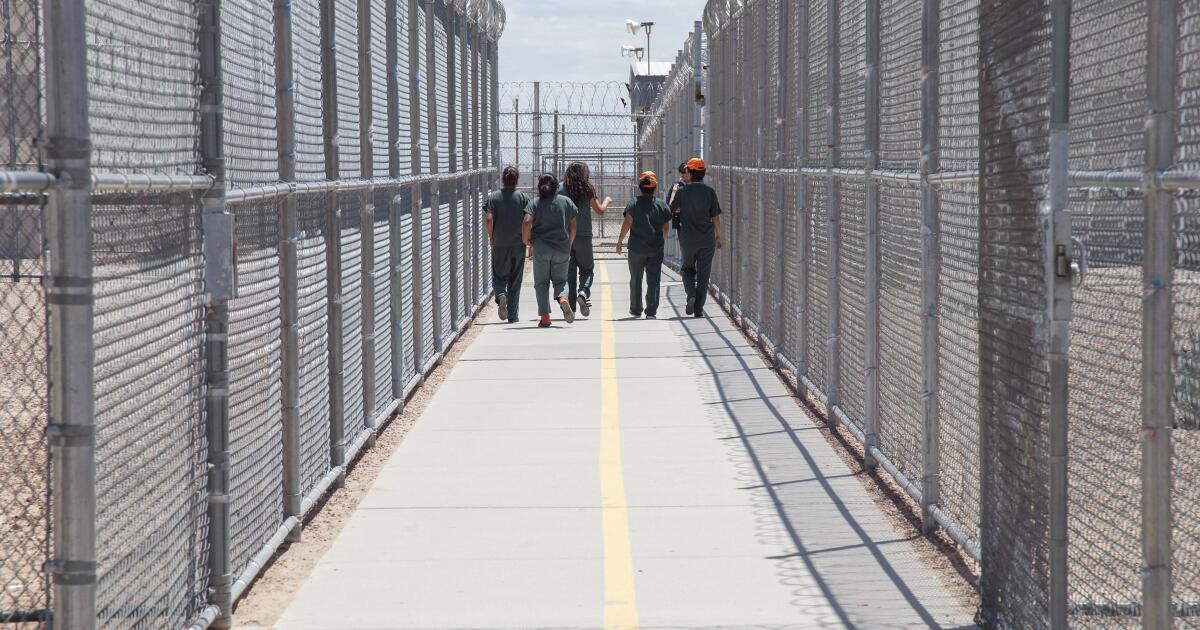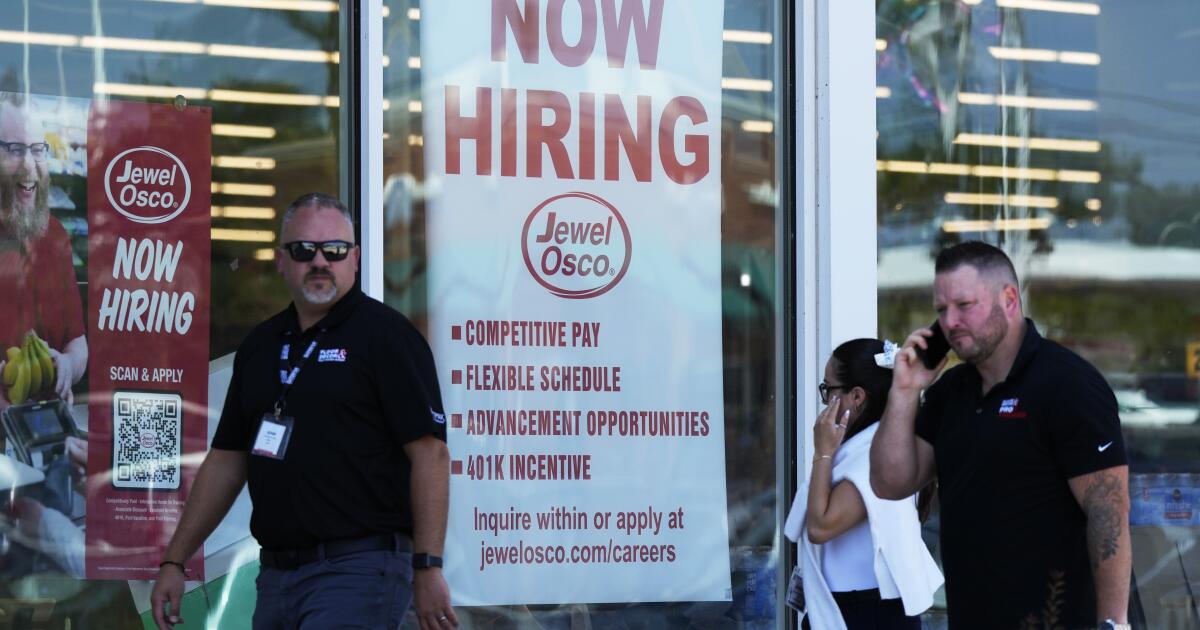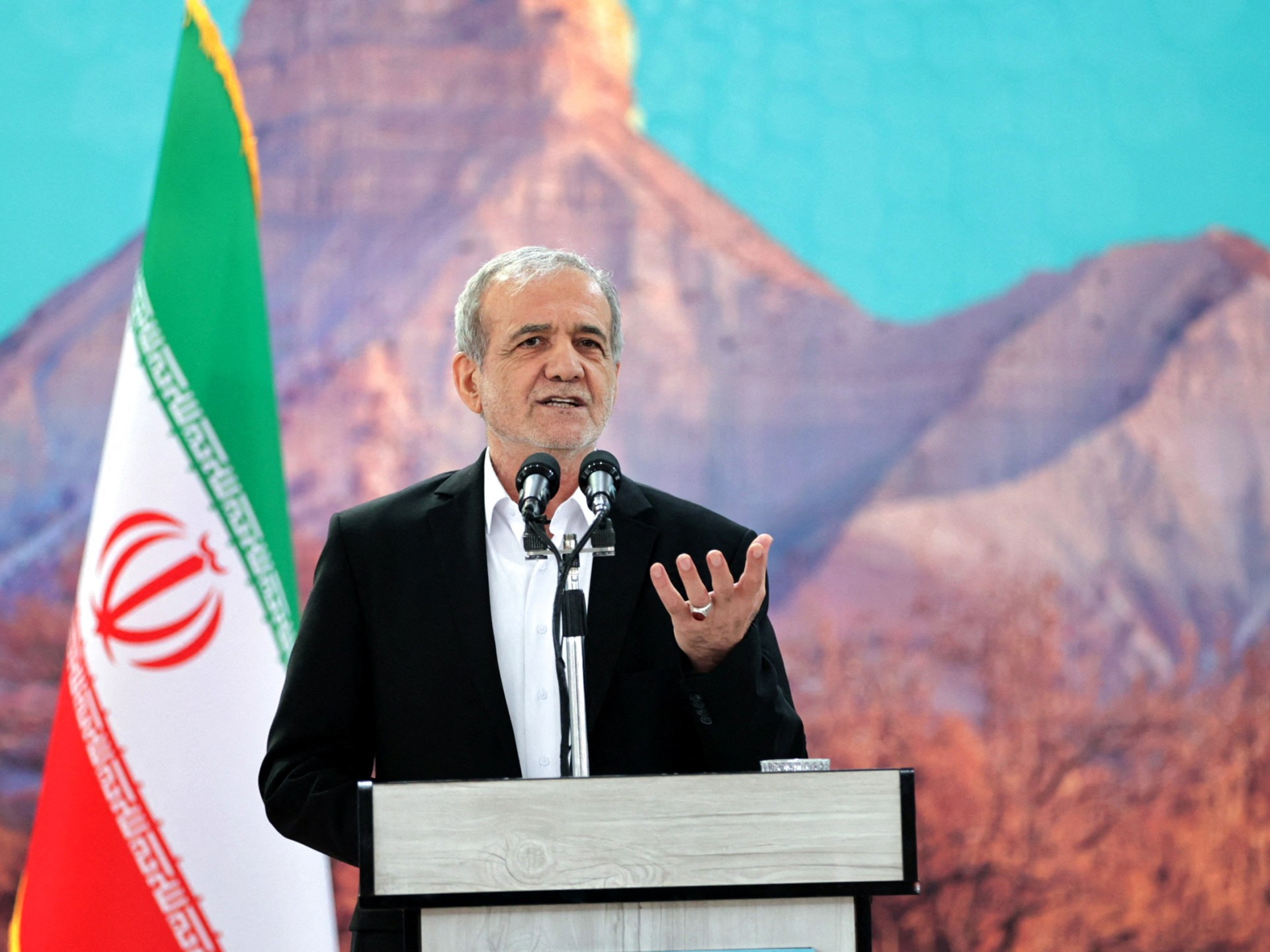After days of protests that shook college campuses, President Biden broke his silence with a brief speech in which he condemned the chaos and called for order, while defending protest as a fundamental American right.
Will Biden's comments be enough to satiate young voters? Some political analysts believe not.
“For Biden to get back on track with young voters, he needs to think and act differently and really take seriously what these young activists have been asking for,” said Diane Wong, an assistant professor of political science at Rutgers University.
In a five-minute speech at the White House on Thursday, the president attempted to balance two fundamental principles: the right to protest and the rule of law.
“Violent protest is not protected. Peaceful protest is,” she said. “Vandalism, trespassing, breaking windows, campus closures, forcing the cancellation of classes and graduations – none of this is peaceful protest.”
In addition to calling on their universities to divest from companies doing business in Israel, students have called on the administration to withdraw military support for Israel. They also urged Biden to push harder for a peaceful solution to the war between Israel and Hamas.
“Mr. President,” asked one journalist, “have the protests forced you to reconsider any of your policies regarding the region?”
“No,” Biden said, stepping away from the lectern and leaving the room.
Biden's dismissive reaction to students' concerns about Gaza has already hampered his campaign, Wong said, noting that students at Rutgers University in New Jersey campaigned to pressure Michigan Democrats to vote “uncommitted.” ” instead of voting for Biden in Michigan. primary.
For months, the Biden campaign has been pushing issues seemingly close to the hearts of young voters: forgiving student debt, promoting abortion access and even reclassifying marijuana as a less dangerous drug. Still, said Democratic strategist Carly Cooperman, the campaign's message is not reaching young voters.
“We've seen poll after poll that shows Biden is simply below par with this group,” Cooperman said.
Wong said Biden's campaign is banking on courting young voters with issues other than Gaza.
“To me, that seems risky and a move Biden will likely regret in November,” Wong said. “Because yes, Gen Z are not single-issue voters, but they collectively just experienced the worst political repression on college campuses we've seen in decades. And the trauma of this type of violence is remembered.”
Until this week, Biden had left it up to other administration officials to speak about the university protests. Former President Trump has also said relatively little, although on Wednesday he praised police for suppressing protests at Columbia University, calling students “raging lunatics” and “Hamas sympathizers.”
He mulled whether the students who vandalized campus buildings would be prosecuted in the same way as their supporters who ransacked the Capitol on January 6, 2021.
It is known that young voters do not vote at the same rate as older adults and retirees. Even so, its participation has increased little by little in recent years. The 2022 midterm elections saw the second-highest percentage of voters ages 18 to 29 casting ballots in decades, said Mindy Romero, director of the Center for Inclusive Democracy at the USC Price School.
A Harvard Institute of Politics poll released last month found that more than half of Americans ages 18 to 29 say they will vote in November, which is on par with its 2020 findings.
“Today's young people have clear concerns about where our country is headed,” Setti Warren, director of the institute, said in a statement. “From concerns about the economy, foreign policy, immigration and climate, young people across the country are paying attention and are increasingly prepared to make their voices heard at the polls this November.”
One of the most important issues young voters agree on is support for a ceasefire between Israel and Hamas. A little more than half of young people between 18 and 29 years old support a ceasefire, while 10% are opposed, according to the Youth Survey.
Biden's standing with young voters over his handling of the conflict between Israel and Hamas has become even more pronounced after a week of protests on college campuses. Young, college-educated voters are both Biden's most likely supporters and those who follow news about the conflict most closely.
The Harvard survey found that young voters with a college degree are 50% more likely to pay attention to news about Israel-Hamas, compared to 39% of current college students and 32% of those who never They attended university.
Those voters without degrees represent a particular challenge for Biden.
“There are a lot of voters who don't have college degrees,” Cooperman said. “And these young people are really struggling with the daily cost of living and the impact of inflation. For them, they are generally discouraged and unhappy with the status quo. And its current president is Biden. “So there is an aspect of this that becomes a referendum on him.”
Trump's support among young voters generally pales in comparison to that of his rival: Biden leads with 19% among likely voters under 30, according to the Harvard poll. But, the survey notes, “the race is even among those who are not in college and do not have a four-year degree.”
For college students, the war in Gaza is creating an unusual push for political engagement, Romero said. Typically, he said, political issues in the news don't translate into droves of young voters going to the polls. But the Middle East war is different.
“The issue itself lends itself to it, because of how much it is intertwined with the Biden administration and its policies,” Romero said. “And it is an election year in which they feel they have some power. There is some consequence. “They can hold the administration responsible.”
It would be smart for campaigns to take advantage of youth participation by offering a listening tour, he added.
“Just from a commitment and democratic process perspective, this is an opportunity for the president of both parties to talk to young people about what matters to them and campaign around their positions,” Romero said. “Of course, this is an incredibly difficult topic to address.”
While the president has been reluctant to directly address young voters on the issue, Rep. Ro Khanna (D-Fremont) is one of the Biden campaign's go-to surrogates in its fight over Gaza.
Although Khanna supports the president, he has openly expressed his belief that the United States should refrain from sending more military aid to Israel and has been open about his disagreements with Biden on the issue.
On a recent visit to the University of Wisconsin at Madison, Khanna asked a room full of Jewish and Muslim students about their opinions on Biden, according to a video he posted on X on Wednesday.
“The generation in Washington, regardless of party, has not been able to solve it,” Khanna said of the Middle East conflict. “And my hope is more in his generation.”
The school year will end soon, and there's no telling where the pro-Palestinian camps on college campuses (or young voters' support for Biden) will go.












